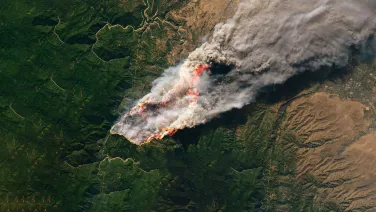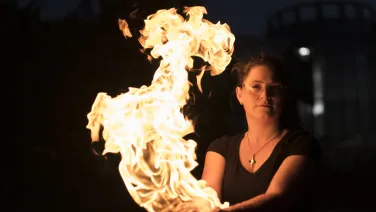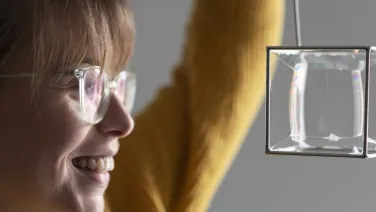
Science Communication: "So much more to science than I ever realised"
When I enrolled in my science degree at ANU, I was sure I wanted to focus just on chemistry. Then, when it came time to choose my courses, I scrolled through my options and saw there was so much more to science than I ever realised.
One new discovery for me was science communication. I remember reading that name and thinking, ‘What’s that?’ I enrolled in one of the courses to find out and found myself leaving the class thinking about all these really important things that I had never thought of before.
You often hear about how the scientific community has found evidence of something but been unable to get people to pay attention to the issue. In Australia we also hear about how we need more people in STEM. This is what made me realise just how important science communication is.
One of the things that inspired me to go into STEM was curiosity about chemistry - that and some wonderful teachers. I used to look at objects around me and think, isn’t this crazy? That object is hard, that one’s soft, that’s blue and that’s orange, all because one electron decided to jump from here to there, changing the properties of things around us.
Science communication helped me to realise that not only did I enjoy experiencing this curiosity, I wanted to share it with other people, with the goal of making the world a better place.
And so, I went from not knowing that something like science communication even existed, to spending hours of my day at the Australian National Centre for the Public Awareness of Science at ANU.
Going home and then explaining to my parents that I wanted to start doing more science communication was a very interesting experience. Like me, my parents didn’t really know that it was a field of study. They knew I liked chemistry, but explaining that I now also planned to study something they had never even heard of before was hard. I’m not sure if they still fully understand what a science communicator does, as it is a more practically learnt subject, but they recognise how important it is and are supportive. My mother, who is a doctor, shared with me that while understanding the scans and data you’re looking for is important, equally important is how you communicate that info to the patient and to fellow doctors.
I think the world would be a much better place if misinformation wasn’t there, and communicating effectively is a great way to ensure that. We know how powerful fields of science have been in making the world better: through major advances in health, technology, and so much more. I am really excited to see how advances in science communication help make the world better too.
If you would like to communicate scientific breakthroughs or tackle misinformation, consider adding some science communication courses to a Bachelor of Science at ANU.



